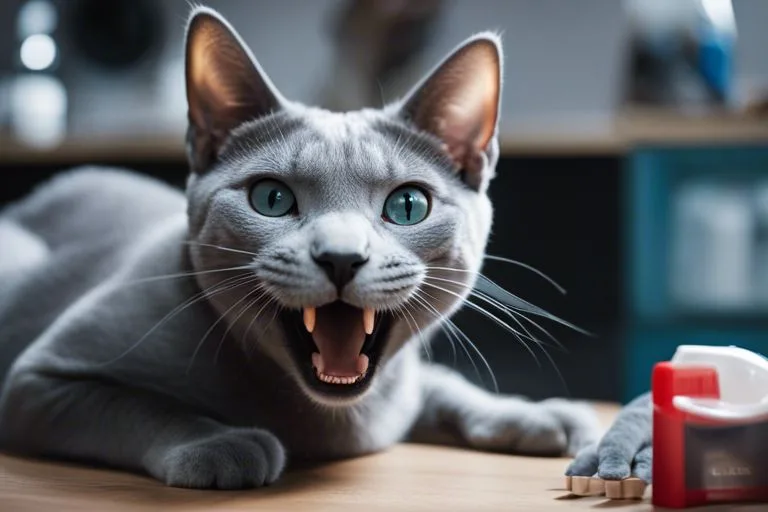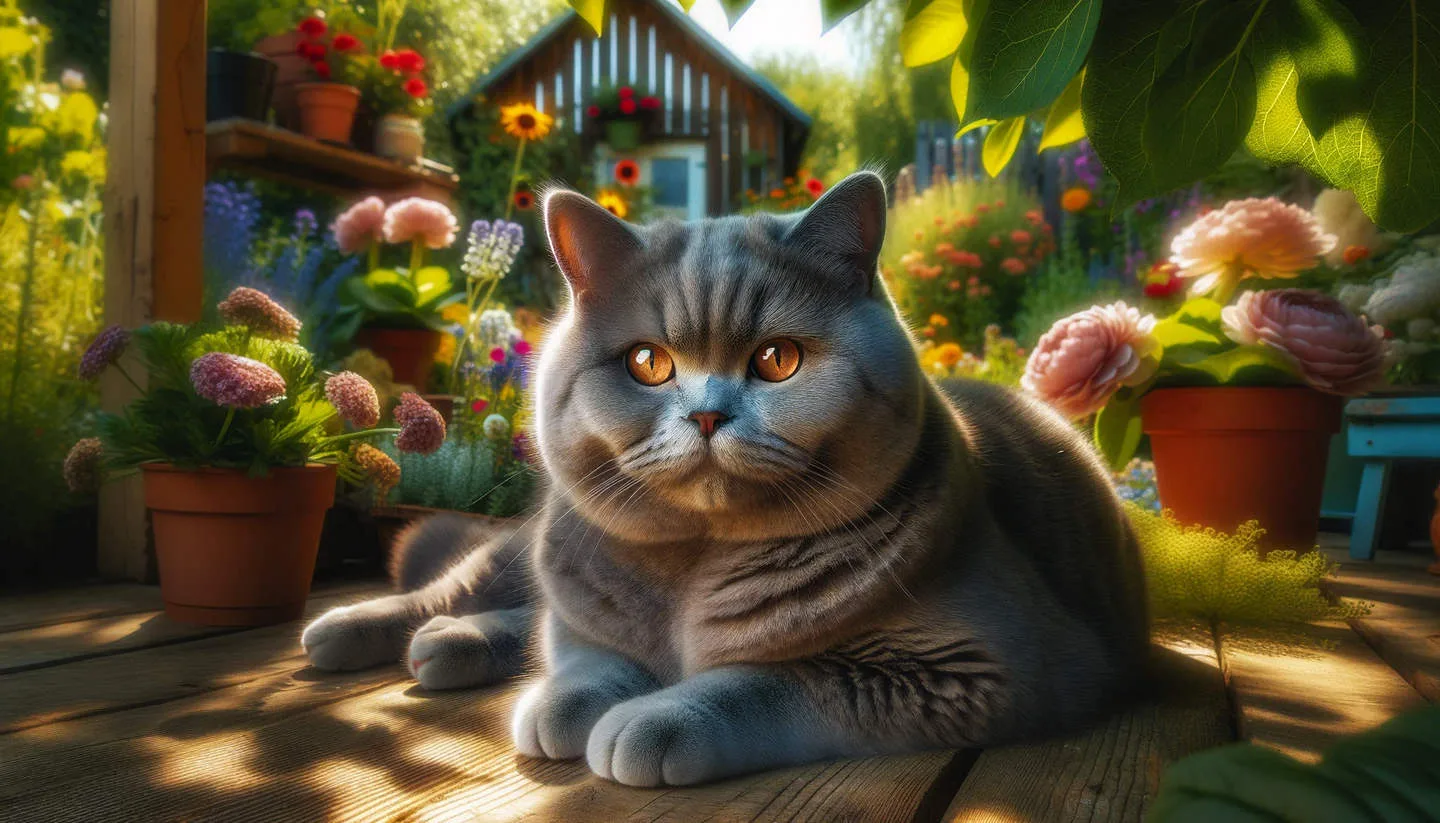Have you ever wondered if your beloved Russian Blue cat is prone to teeth gum disease? The truth is that all cats, including Russian Blues, are at risk of developing dental issues. However, you must be particularly vigilant when it comes to your Russian Blue’s dental health. Periodontal disease can pose a serious threat to your cat’s overall well-being if left untreated. Russian Blue cats are known for being more susceptible to gingivitis and periodontitis due to various genetic factors. Nonetheless, with regular dental care and attention, you can help prevent these conditions from affecting your feline companion.
Key Takeaways:
- Russian Blue cats are prone to teeth gum disease: Due to their genetic predisposition, Russian Blue cats have a higher likelihood of developing teeth and gum problems compared to other breeds.
- Regular dental care is essential: It is crucial for Russian Blue cat owners to prioritize regular dental care, including tooth brushing and professional cleanings, to prevent and manage teeth gum disease.
- Proper diet can support dental health: Feeding your Russian Blue cat a balanced diet that promotes dental health, such as dental-specific cat food or treats, can help reduce the risk of teeth gum disease.
Russian Blue Cats: Breed Characteristics and Health Predispositions
Obviously, when considering adopting a Russian Blue cat, it’s essential to understand the characteristics and health predispositions of this breed. Russian Blue cats are known for their striking blue-gray coat, bright green eyes, and gentle personality. These cats are typically healthy, but like all breeds, they are predisposed to certain health issues, including dental problems. It’s important to be aware of their breed characteristics and potential health concerns to ensure you can provide the best care for your Russian Blue.
The Russian Blue Breed: An Overview
The Russian Blue is a medium-sized cat with a sleek, elegant appearance. They are known for their intelligence, playful nature, and their tendency to form strong bonds with their human companions. Russian Blues are generally healthy, with a life expectancy of 15-20 years. They are also known for their low shedding and hypoallergenic qualities, making them a great choice for cat lovers with allergies.
Common Health Issues in Russian Blue Cats
While Russian Blue cats are generally healthy, they do have some predispositions to certain health issues. One of the most common problems seen in Russian Blues is dental disease. This can include issues such as gingivitis, periodontal disease, and tooth decay. Poor dental health can lead to more serious health problems, affecting your cat’s overall well-being. It’s important to pay attention to your cat’s dental health and take steps to prevent and treat any issues that may arise.
Remember, regular dental check-ups and cleanings can help prevent dental disease in your Russian Blue. If you notice any signs of dental problems, such as bad breath, swollen gums, or difficulty eating, it’s essential to seek veterinary care promptly. You play a crucial role in maintaining your Russian Blue’s health, so be sure to stay informed and proactive in caring for your feline friend. Dental Disease and your Cat
Understanding Teeth Gum Disease in Cats
One of the common health concerns for cats, including Russian Blue cats, is teeth gum disease. According to Russian Blue Cat Health Problems: 7 Vet-Reviewed Issues, gum disease is a potential problem for this breed. It’s important to understand what gum disease is, the signs and symptoms to watch for, and how to prevent and treat it.
What is Teeth Gum Disease?
Teeth gum disease, also known as periodontal disease, is an infection of the tissues that support the teeth. This includes the gums, the cementum that covers the root, the periodontal ligament, and the alveolar bone. It is a common condition in cats, and if left untreated, can lead to tooth loss and other health issues. Plaque buildup and bacteria are the main causes of gum disease, leading to inflammation and infection.
Signs and Symptoms to Watch For
There are several signs and symptoms of gum disease that you should watch for in your Russian Blue cat. This includes bad breath, swollen or bleeding gums, difficulty eating, loose teeth, and excessive drooling. If you notice any of these signs, it’s important to take your cat to the veterinarian for a check-up. Early detection and treatment are crucial in preventing the progression of gum disease and maintaining your cat’s oral health.
Dental Health Management for Russian Blue Cats
Keep 7 Common Russian Blue Cat Health Problems in mind when it comes to managing the dental health of your Russian Blue cat. Dental health is an important part of overall wellness for your feline friend, and as a Russian Blue owner, it’s crucial to understand the specific dental needs of this breed.
Preventative Dental Care Tips
When it comes to preventing gum disease in Russian Blue cats, regular brushing of your cat’s teeth is essential. This helps to remove plaque and prevent the buildup of tartar. You can introduce tooth brushing to your cat gradually by starting with simply rubbing your finger along their gums, then slowly transitioning to using a small cat toothbrush with pet-friendly toothpaste. Additionally, providing dental treats and toys can aid in keeping your cat’s teeth clean. Finally, scheduling regular dental check-ups with your veterinarian is important to catch any dental issues early on. The earlier you detect a problem, the better the chances for successful treatment.
Treatment Options for Gum Disease
If your Russian Blue cat is diagnosed with gum disease, professional dental cleaning may be necessary to remove the buildup of tartar and address any other issues. Your veterinarian may recommend a special dental diet to help manage your cat’s oral health. In more severe cases, tooth extraction or other dental procedures might be required. It’s important to follow your veterinarian’s advice and treatment plan to ensure the best outcome for your cat’s dental health.
Are Russian Blue Cats Prone To Teeth Gum Disease?
Ultimately, it is important to be proactive in caring for your Russian Blue cat’s dental health. While they may not be more prone to teeth and gum disease than other breeds, regular dental care is still essential to ensure their overall well-being. You can help prevent dental issues by providing a balanced diet, regular teeth cleaning, and annual dental check-ups with your veterinarian. By paying attention to your cat’s dental health and taking the necessary precautions, you can help keep their teeth and gums healthy and ensure they live a long and happy life.
FAQ
Q: Are Russian Blue Cats Prone To Teeth Gum Disease?
A: Yes, Russian Blue cats are prone to teeth and gum disease due to their genetic predisposition to dental issues. Proper dental care is essential to maintain their oral health.
Q: What are the common dental issues in Russian Blue cats?
A: Common dental issues in Russian Blue cats include periodontal disease, gingivitis, and tooth decay. These conditions can lead to pain, discomfort, and potential tooth loss if left untreated.
Q: How can I prevent teeth and gum disease in my Russian Blue cat?
A: To prevent dental issues, it’s important to brush your cat’s teeth regularly, provide dental treats and toys, and schedule annual dental check-ups with a veterinarian. A healthy diet can also contribute to good oral health.
Q: What are the signs of teeth and gum disease in Russian Blue cats?
A: Signs of dental issues in Russian Blue cats may include bad breath, swollen or bleeding gums, difficulty eating, drooling, and reluctance to chew on hard food or toys. If you notice any of these symptoms, it’s important to seek veterinary care.
Q: Should I consider professional dental cleanings for my Russian Blue cat?
A: Yes, professional dental cleanings may be necessary for Russian Blue cats, especially if they have existing dental issues. Regular cleanings can help remove plaque and tartar buildup, preventing more serious dental problems in the future.



